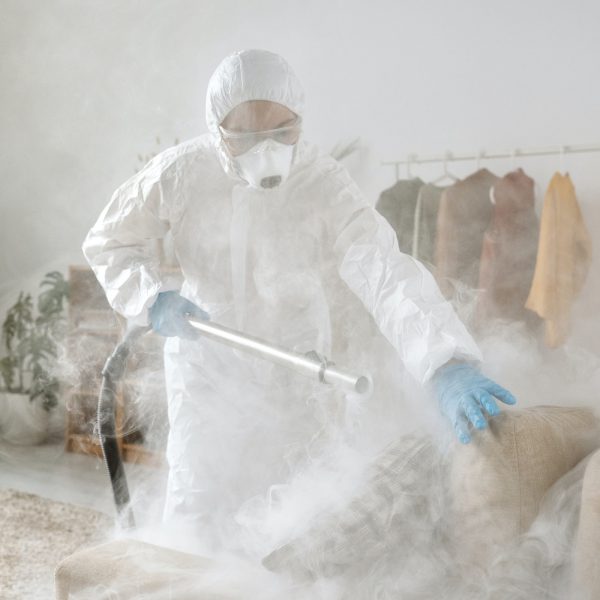During the pandemic, many organizations were looking for ways to disinfect public spaces. Some of these methods used familiar disinfecting sprays, wipes, or bleach. Some methods were less familiar. We wanted to look at a couple of these newer methods for whole room disinfecting and how they are supposed to work.
Disinfectant Sprayer or Fogger
Foggers release their disinfectant in the air to settle on the surfaces below. This can be an efficient way to distribute a disinfectant spray over a large area and many surfaces. The droplets are typically designed to be airborne prior to settling on surfaces.
Electrostatic Disinfecting
Electrostatic disinfecting pushes charged disinfectant droplets through a nozzle. The charge of the disinfectant is to help it adhere, which can be useful in getting it evenly distributed on tricky surfaces. Unlike a fogger, the droplets are designed to immediately attract and attach to objects.
With either of these methods, the application should only be done by professionals in proper compliance with the information on the label. This includes following safety protocols, such as wearing the appropriate personal protective equipment (PPE) and applying the product when the rooms are otherwise unoccupied.
Keep in mind that you can’t just spray and walk away. Surfaces should be cleaned beforehand. And to get the disinfecting benefit, users will still need to ensure that a surface stays wet for the entire contact time, which may involve reapplication. This method may also not be appropriate for areas with electronics, which should be cleaned according to manufacturer instructions.
These technologies are designed to complement but not replace other more standard disinfection methods, particularly for high touch surfaces or high traffic areas. With proper use, however, they can be additional tools in the arsenal of keeping our public spaces safe and clean.


TELL US WHAT YOU THINK (0)